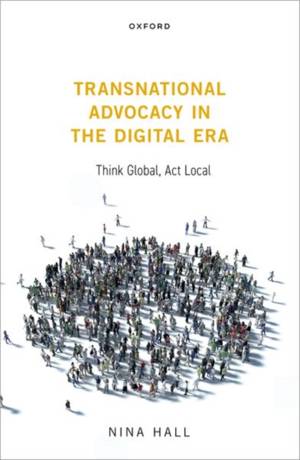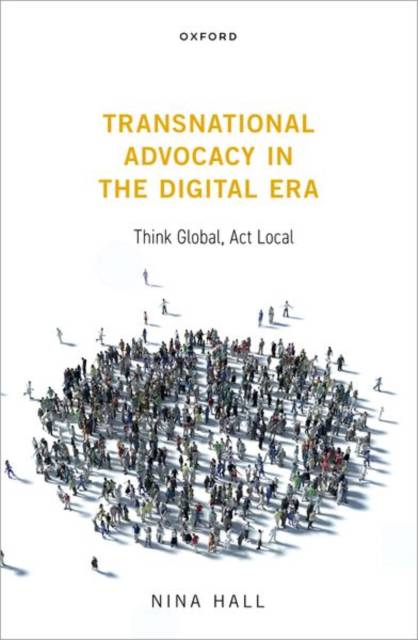
- Afhalen na 1 uur in een winkel met voorraad
- Gratis thuislevering in België vanaf € 30
- Ruim aanbod met 7 miljoen producten
- Afhalen na 1 uur in een winkel met voorraad
- Gratis thuislevering in België vanaf € 30
- Ruim aanbod met 7 miljoen producten
Zoeken
€ 177,45
+ 354 punten
Uitvoering
Omschrijving
Transnational Advocacy in the Digital Era explores the role of digital advocacy organizations, a major new addition to the international arena. Organizations such as MoveOn, GetUp, and Campact derive power and influence from their ability to rapidly mobilize members on-line and off-line and are shaping public opinion on many issues including climate change, trade, and refugees. Research in international relations (IR) has highlighted the influence of non-governmental organizations, which wield power through their expertise and long-term, moral commitment to an issue. However, no IR scholars have explored the spread and power of digital advocacy organizations. Nina Hall provides a detailed investigation of how these organizations have harnessed digitally networked power and can quickly respond to the most salient issues of the day, and mobilize large memberships, to put pressure on politicians. She finds that these organizations operate in a globalized world but tackle transnational problems by focusing on national targets. This new generation of activists have formed a strong transnational network, but still see the state as the locus of power.
Specificaties
Betrokkenen
- Auteur(s):
- Uitgeverij:
Inhoud
- Aantal bladzijden:
- 282
- Taal:
- Engels
Eigenschappen
- Productcode (EAN):
- 9780198858744
- Verschijningsdatum:
- 31/10/2022
- Uitvoering:
- Hardcover
- Formaat:
- Genaaid
- Afmetingen:
- 161 mm x 238 mm
- Gewicht:
- 566 g

Alleen bij Standaard Boekhandel
+ 354 punten op je klantenkaart van Standaard Boekhandel
Beoordelingen
We publiceren alleen reviews die voldoen aan de voorwaarden voor reviews. Bekijk onze voorwaarden voor reviews.











